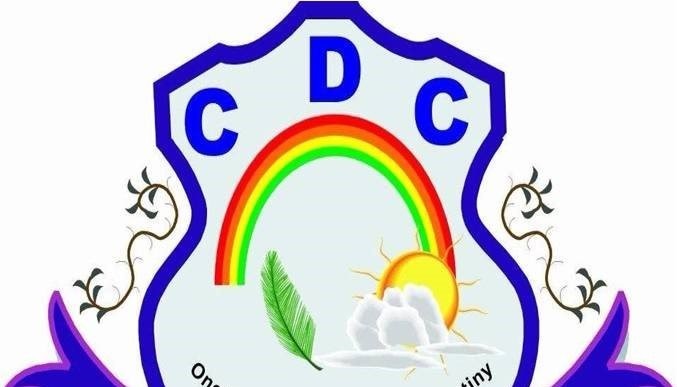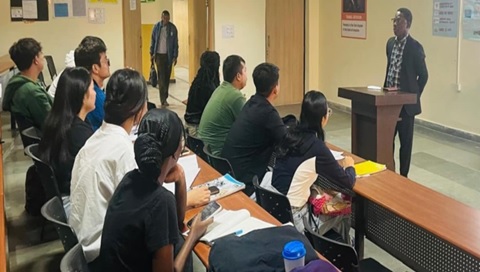LIBERIA – The National Youth League of the former ruling Coalition for Democratic Change (CDC) has strongly condemned the use of live ammunition and excessive force by the Liberia National Police (LNP), led by Inspector General Gregory Coleman, against peaceful and unarmed citizens gathered at the Capitol on Tuesday, December 17, 2024. In a scathing press statement, the CDC Youth League described the police crackdown as a blatant assault on democracy, warning that President Joseph Nyuma Boakai’s actions could plunge Liberia back into an era of political violence and repression.
The CDC Youth League emphasized that the right to assemble is enshrined in Article 17 of the Liberian Constitution, which guarantees that all citizens have the right to assemble and petition the government in a peaceful and orderly manner. The League pointed out that such rights cannot be trampled upon by any government official, including President Boakai and Police Director Coleman. They argued that the use of live bullets against unarmed citizens is an undemocratic and tyrannical act that echoes the violent and oppressive actions of past regimes, particularly those of the Unity Party.
In their statement, the Youth League characterized the police action as barbaric and reckless, further asserting that it undermines the democratic achievements of the country, particularly the peace and stability cultivated during the CDC’s governance under President George Weah. They accused the Unity Party of returning the country to its violent past, where political dissent was often met with bloodshed and intimidation.
The CDC Youth League also called for the immediate and unconditional release of those detained during the protest, including Sekou Kalasco Damaro, Cadre Yaya V. Sesay, Thomas Sarbo, and Fatumata alias Lib Simi, among others. The League claimed that many of those detained had been taken to unknown locations, with reports suggesting that they might be subject to harm under the orders of Police Director Gregory Coleman. They challenged the official police report, which stated that only 70 individuals were arrested, accusing the government of an attempt to conceal the extent of the crackdown.
Furthermore, the Youth League issued a 48-hour ultimatum to the government, demanding the release of all detained citizens. They warned that failure to comply would result in unspecified actions, and they threatened to escalate the situation if their demands were not met. The statement included a stark warning to President Boakai, claiming that if the detainees were not released, more lives would be lost and the country would face dire consequences.
In a show of solidarity, the CDC Youth League expressed support for various groups advocating for justice, including aggrieved health workers, dismissed TECY employees, former EPS officers, student movements, MCC workers, AFL women, and victims of rape. The League stressed the need for unity among young people and sympathizers of the CDC, urging them to resist what they termed as an attempt by President Boakai and the Unity Party to derail the progress made under the previous administration.
The statement concluded with a strong call to the international community, urging global organizations and human rights groups to hold President Boakai and his administration accountable for their actions. The Youth League argued that Liberia’s peace and democracy were under threat and that the international community must act to prevent a return to an undemocratic state.
While the CDC Youth League has painted a grim picture of the police’s actions, the Liberia National Police, led by Inspector General Gregory Coleman, has strongly denied the use of live ammunition on protesters. In a statement to the press at LNP headquarters in Monrovia, Coleman refuted the claims made by the CDC Youth League, asserting that the police did not use live bullets during the demonstration. He offered journalists the opportunity to visit hospitals to verify the absence of gunshot wounds and to confirm that no live ammunition had been fired into the crowd.
Coleman emphasized that the LNP is committed to safeguarding both the rights of citizens and public safety. He reiterated that the police had adhered to their constitutional duty to protect citizens’ right to peaceful assembly, a primary right guaranteed by Liberia’s Constitution. He explained that the police had made efforts to ensure the demonstration was peaceful by setting up designated no-go zones, but protesters had defied these barriers, which led to the escalation of tensions.
According to Coleman, despite the protestors breaching the barricades, the police had remained committed to ensuring that the protest remained peaceful and that citizens’ rights were protected. He emphasized that the police had provided the necessary protection and had only acted to manage the situation when protesters disregarded the set boundaries.
The tension between the CDC Youth League’s account and the LNP’s version of events highlights the deepening divide between the opposition and the ruling government. The Youth League’s strong condemnation of the police’s actions has sparked a wider debate about the balance between maintaining public order and respecting citizens’ constitutional rights. This incident has also raised concerns about the potential for further unrest, with both sides accusing each other of undermining Liberia’s democratic principles.
As the situation continues to unfold, both the government and opposition are under intense scrutiny. The demand for the immediate release of detainees and the threat of further actions if the demands are not met have added urgency to the crisis. The international community’s response will be crucial in determining the trajectory of the political situation in Liberia. With the 48-hour deadline looming, the pressure is mounting on the Boakai administration to address the concerns raised by the opposition and to ensure that Liberia’s democratic rights are respected.







